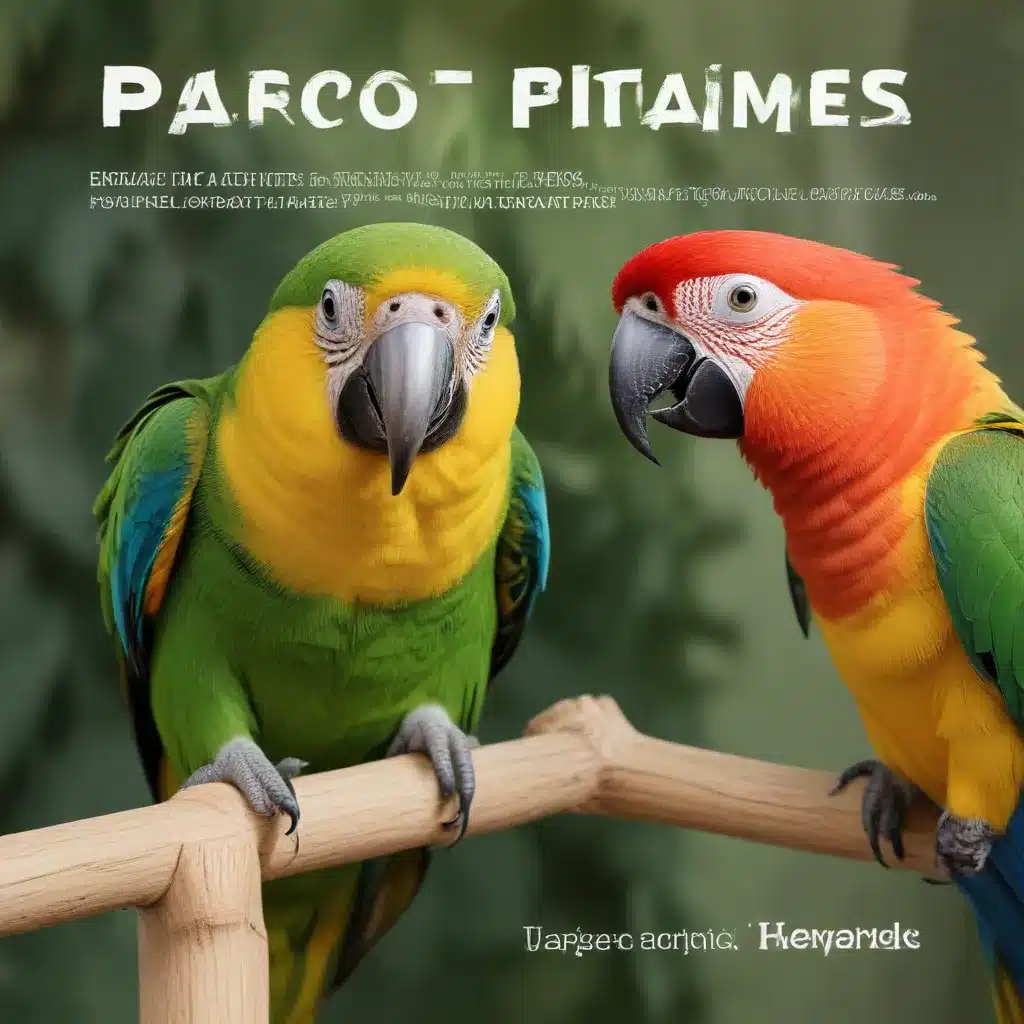
As an experienced avian caretaker and expert in bird species, I’m excited to share practical insights on enriching the lives of our feathered companions – the amazing parrots. These intelligent creatures possess complex needs that extend far beyond just providing food and shelter. To help them thrive, we must thoughtfully cultivate environments that stimulate their physical, cognitive, and sensory capabilities.
Avian Companions
Parrot Species Diversity
The parrot family, scientifically known as Psittacidae, is a diverse and fascinating group of birds. From the vibrant macaws and cockatoos to the playful conures and budgies, each species exhibits unique personalities, behaviors, and care requirements. Understanding the nuances of different parrot types is crucial to meeting their individual needs and ensuring their overall wellbeing.
Parrot Intelligence and Needs
Parrots are renowned for their remarkable intelligence, which often surpasses that of many mammalian species. This advanced cognitive ability translates to a heightened need for mental stimulation and enrichment. Failure to provide suitable outlets can lead to the development of problematic behaviors, such as excessive screaming, feather plucking, or even self-mutilation.
Parrot Care Considerations
Caring for parrots requires a multifaceted approach that addresses their physical, social, and emotional needs. Factors like proper nutrition, secure housing, regular veterinary check-ups, and positive reinforcement training all play a vital role in supporting their long-term health and happiness. As their caretakers, we have a responsibility to ensure our avian companions thrive, not merely survive.
Enrichment for Intelligent Parrots
Physical Stimulation Activities
Parrots are naturally active and energetic creatures that require ample opportunities for physical exercise and exploration. Providing a variety of climbing structures, swings, ladders, and perches encourages them to move about their environment, strengthening their muscles and promoting overall fitness. Additionally, introducing novel objects, such as foraging toys or manipulative puzzles, can stimulate their natural curiosity and problem-solving abilities.
Cognitive Engagement Strategies
Engaging a parrot’s intellect is crucial for their wellbeing. Clicker training, for instance, not only teaches them new behaviors but also helps build trust and confidence. Likewise, rotating different types of puzzles and hide-and-seek games challenges their problem-solving skills and prevents boredom. Fostering a sense of accomplishment through these cognitive exercises can have a profoundly positive impact on a parrot’s mental health.
Sensory Exploration Opportunities
Parrots possess a keen sensory awareness, and catering to their diverse perceptual needs can significantly enhance their quality of life. Offering a variety of textures, sounds, and visual stimuli, such as natural branches, wind chimes, or colorful toys, allows them to engage multiple senses and explore their surroundings more fully. Incorporating these sensory-rich elements encourages natural behaviors and helps prevent the development of stress-induced issues.
Parrot-Friendly Environments
Habitat Design Elements
Crafting an enriching habitat for parrots requires careful consideration of their unique needs. Spacious cages or aviaries with ample vertical space, multiple perching options, and a mix of natural and artificial materials provide a stimulating environment. Incorporating hiding spots, nesting areas, and foraging stations further encourages species-appropriate behaviors and reduces the risk of boredom or anxiety.
Toy Selection and Rotation
Parrots are highly intelligent and easily bored, so regularly rotating their toys and enrichment items is essential. Introduce new puzzles, chew toys, and interactive elements to keep them engaged and challenged. Observing their preferences and incorporating their favorite items can help foster a sense of security and comfort within their habitat.
Perching and Foraging Stations
Parrots are arboreal creatures, and providing a variety of perching options, from natural branches to diverse textures, allows them to exercise their natural climbing and grasping abilities. Strategically placing foraging stations, such as scattered food or hidden treat dispensers, encourages their innate foraging behaviors and promotes physical activity.
Behavioral Health and Wellbeing
Preventing Problematic Behaviors
Addressing the root causes of undesirable behaviors, such as excessive screaming or feather plucking, is crucial for a parrot’s overall wellbeing. By ensuring their physical, cognitive, and emotional needs are met through enrichment activities and a suitable environment, we can minimize the development of these problematic behaviors and foster a positive relationship between the bird and its caretaker.
Encouraging Natural Behaviors
Parrots are inherently social, curious, and playful creatures. By creating opportunities for them to engage in species-typical behaviors, like preening, vocalizing, and interacting with their environment, we can support their natural inclinations and promote a sense of contentment. Observing and understanding their unique behavioral patterns can guide us in providing the appropriate enrichment and care.
Reducing Stress and Anxiety
Parrots can be sensitive to changes in their environment and routine, which can lead to elevated stress levels and anxiety. Maintaining a predictable schedule, minimizing disruptive noises or activities, and offering a secure and comfortable space can all contribute to a parrot’s overall sense of wellbeing. By addressing their need for stability and security, we can help mitigate the development of stress-related issues.
As an experienced avian caretaker, I hope this comprehensive guide has provided you with valuable insights and practical strategies to enrich the lives of your intelligent parrot companions. By prioritizing their physical, cognitive, and sensory needs, we can foster a strong bond, promote natural behaviors, and ensure their long-term health and happiness. Remember, every parrot is unique, so be prepared to adapt and experiment to find the best approach for your feathered friend. Wishing you and your parrots endless hours of engaging playtime and enrichment!
For more information on avian care and the latest news in the avian community, be sure to visit Mika Birds Farm.


